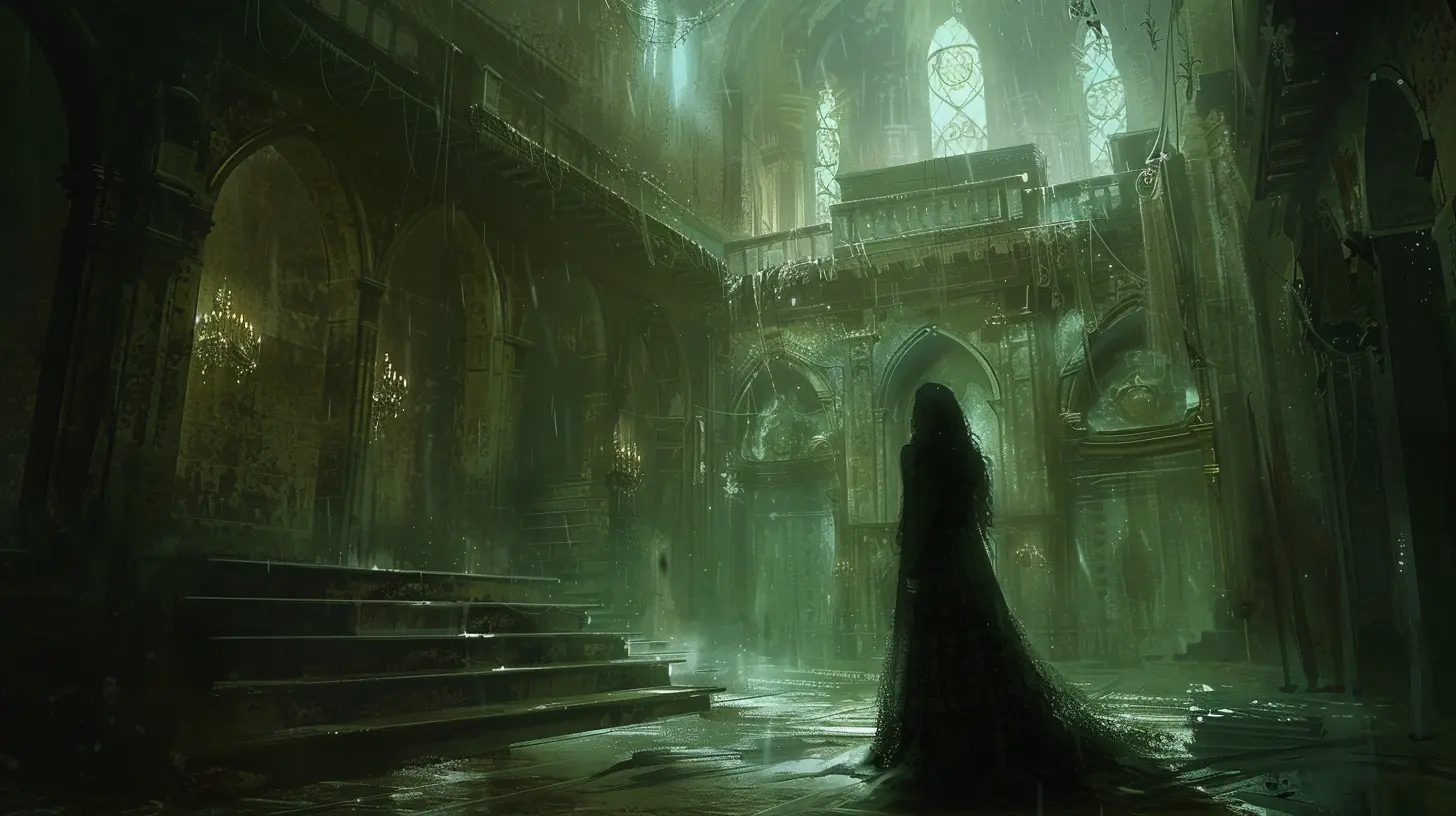The Art of the Leak: How Some Reveals Are Carefully Orchestrated
11 October 2025
When you hear the word "leak," what comes to mind? For many, it’s the image of something unintended—a burst pipe, a secret accidentally spilled, or a company scrambling to control an unexpected PR disaster. But here’s a juicy little nugget: not all leaks are accidents. In fact, some are masterfully planned, weaving drama and intrigue like a Hollywood script. Nobody's spilling coffee on their laptop to make these "mistakes." Nope, we're talking about the art of the leak, where some reveals are as carefully orchestrated as a symphony.
Let’s dig in and uncover how leaks aren’t always chaotic storms but sometimes deliberate, calculated moves. Trust me, by the end of this, you’ll never look at “leaked” game trailers, casting rumors, or spoilers the same way again.
Leaks: The Perfect Storm for Hype
Think about the last big gaming leak that set the internet on fire. Maybe it was a blurry image of a character design from an upcoming RPG. Or perhaps it was a mysterious tweet hinting at a long-awaited sequel. Did it get your heart racing? Could you feel the collective excitement (or outrage) on Reddit threads and Twitter hashtags? That’s the magic of leaks—they have a unique way of creating a buzz that no marketing campaign can match.Why? Because humans are naturally curious. When something is whispered but not officially announced, it suddenly becomes forbidden fruit, and we all want a taste. It’s like peeking at your parents’ Christmas presents when you were a kid. That thrill of discovery is intoxicating.
But here’s the twist: Sometimes, those “accidental” leaks are no accident at all.
Controlled Chaos: How Companies Strategically "Leak" Information
Let’s be real for a second—game companies are not run by amateurs. These folks are media-savvy juggernauts with a deep understanding of how to manipulate public perception. When you think about it, orchestrated leaks are some of the smartest moves in their marketing playbook.Here’s how it works:
1. Testing the Waters
Imagine you’re developing a game that’s a bit of a gamble. Maybe it’s a bold new direction for a beloved franchise, or it features a gameplay mechanic that’s totally unproven. What better way to gauge public opinion than by "accidentally" letting a prototype screenshot leak online? It’s like throwing a stick into a pond to see what ripples it creates.If fans go berserk and flood forums with positive reactions, the company knows they’re onto something. But if there’s backlash? Well, they’ve got time to course-correct before the official reveal. Sneaky, right?
2. Building Hype
Orchestrated leaks can also serve as the spark to ignite a hype wildfire. When a major gaming convention like E3 or Gamescom is just weeks away, you might notice a sudden flurry of “leaks” about upcoming announcements. This creates anticipation and builds momentum before the big day.It’s like stoking the coals of a barbecue before throwing on the burgers—by the time the official announcement drops, everyone’s already fired up and ready to eat (or, in this case, ready to pre-order).
3. Controlling the Narrative
Not all leaks are about hype. Sometimes, they’re about damage control. When rumors start swirling about a troubled game development or a delayed release, companies may strategically leak a tidbit of "good news" to shift the narrative. Maybe they’ll tease a beloved character returning or confirm a long-requested feature.It’s like throwing candy to a crying toddler—it distracts and soothes. By steering the conversation, they can minimize negative press and regain control of the narrative.
The Psychology Behind the Leak
Okay, let’s pause for a second: Why do leaks work so well on us? What makes them such an effective tool for companies to manipulate excitement?1. FOMO (Fear of Missing Out)
Ever notice how leaks make people hyper-engaged? Forums light up, hashtags trend, and YouTubers churn out breakdown videos at lightning speed. This happens because leaks tap directly into our FOMO—the fear of missing out. Nobody wants to be the last person to hear about the “leaked” Spider-Man 2 gameplay footage or the Nintendo Direct lineup.And companies know this. By crafting a leak that feels exclusive or time-sensitive, they turn casual fans into ravenous info-hunters. It’s all about creating that sense of "you need to see this NOW."
2. The Thrill of Discovery
Humans love solving puzzles. When leaks contain cryptic clues—think pixelated screenshots, vague codenames, or half-finished concept art—it triggers our inner detective. Gamers especially are wired to chase after secrets (why else would we obsess over Easter eggs in games?).Strategic leaks cater to this by leaving just enough breadcrumbs to keep us guessing but not enough to spoil the whole reveal. It’s like getting a taste of cake batter before the full dessert is served.
When Leaks Go Wrong
Of course, not all leaks are master strokes of marketing genius. Sometimes, genuine leaks happen, and they can derail an entire campaign.Take The Last of Us Part II, for example. Major story spoilers were leaked online months before the game’s release, leaving fans divided and developers devastated. This wasn’t a carefully crafted tease—it was a gut punch to Naughty Dog and everyone who worked on the game. It’s the dark side of leaks, highlighting how uncontrolled information can backfire spectacularly.
But even in these cases, companies don’t always lose. The controversy surrounding a leak can still generate interest. After all, people love drama, and even bad publicity can be better than none at all.
The Fine Line Between Tease and Torture
So, where does this leave us? Should we embrace leaks or approach them with skepticism? Honestly, it’s a mixed bag.On one hand, leaks keep the gaming community alive with excitement, debates, and speculation. They give us something to talk about, something to look forward to. On the other hand, they can sometimes feel manipulative—or worse, they can ruin the element of surprise. Nobody likes having a major plot twist spoiled before they even get a chance to experience it.
It’s a balancing act, and companies that orchestrate leaks need to tread carefully. Too much teasing without payoff can lead to frustration (remember the infamous hype cycle for Cyberpunk 2077?). But when done right, it’s pure marketing gold.
Final Thoughts: The Leak as an Art Form
Whether you love them or hate them, there’s no denying that leaks have become a huge part of gaming culture. Some are genuine slip-ups that send developers into panic mode. Others? Well, they’re as meticulously planned as a Broadway production.So, the next time you see a "leaked" trailer or concept art, ask yourself: Is this really an accident? Or is someone, somewhere, pulling the strings? Because in the world of gaming, few things are ever as spontaneous as they seem.
And hey, maybe that’s part of the fun.
all images in this post were generated using AI tools
Category:
Gaming LeaksAuthor:

Stephanie Abbott
Discussion
rate this article
2 comments
Laila Mendez
Leaks can blur the lines between anticipation and disappointment. It's a reminder that in gaming, as in art, the journey is often as captivating as the destination.
March 4, 2026 at 4:19 PM
Inez McCollum
This article beautifully captures the delicate balance between excitement and anticipation in game reveals. It's fascinating to think about the hard work and strategy behind each leak. Thank you for shedding light on this often-overlooked aspect of gaming culture, reminding us to appreciate the artistry involved in our favorite medium.
October 11, 2025 at 3:47 AM

Stephanie Abbott
Thank you for your thoughtful comment! I'm glad you found the article enlightening—appreciating the artistry behind game reveals is essential to understanding gaming culture.


